Hear that alarming knock coming from your engine? Don’t ignore it! A knocking noise could indicate a serious problem that, if left unchecked, may lead to costly repairs or even engine failure.
Keep reading to learn what engine knock really is, the common causes of engine knocking, and most importantly, practical solutions to diagnose and fix the issue before serious engine damage occurs.
What is Engine Knock?
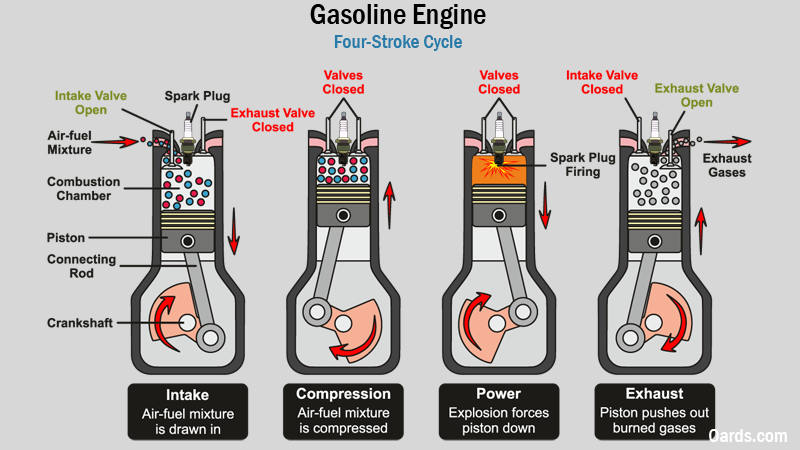
Engine knock (also commonly referred to as ping, preignition or predetonation) is an uncontrolled combustion event inside the combustion chamber. This often occurs due to extreme temperatures or pressures inside the combustion chamber.
As the piston compresses the air fuel mixture, that mixture heats up. Poor fuel quality, incorrect octane, or aggressive timing could cause more pressure than the fuel can handle and cause it to ignite before the spark plug fires.
This commonly results in a pinging sound and additional vibration. Many people describe the sound as “marbles in a can.”
Reasons Your Car is Making a Knocking Sound

People who hear strange noises coming from their engine may disregard them as being nothing. They often wait until the functionality of their vehicle is compromised before they do anything about it.
Don’t put yourself in this situation because many vital components of your engine could be damaged if you do. And damaged components = $$$.
It’s best to investigate the cause of the knocking noises as soon as you hear them and take your vehicle to a repair shop and get the necessary repairs or replacements done. Here are five of the most common causes of car engine knocking noises.
1) Lean Air-to-Fuel Mixture
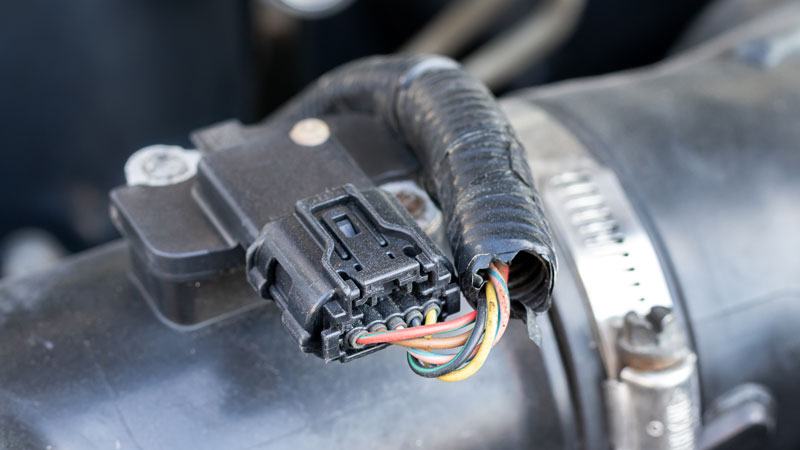
A lean air-to-fuel mixture is one of the most common causes of engine knocking. In order for your engine to run smoothly, it requires a precise balance of air and fuel in the combustion chamber. When there’s too much air and not enough fuel, the mixture is considered “lean.”
A lean mixture can cause the fuel to ignite unevenly and spontaneously, leading to a phenomenon called pre-ignition. This uneven burning creates multiple flame fronts within the cylinder, which collide with each other and create a knocking or pinging sound.
Over time, a consistently lean mixture can cause severe damage to the engine’s internal components. The excessive heat and pressure generated by pre-ignition can lead to damage on the cylinder walls, pistons, and piston rings. If simply ignored, this can result in a variety of symptoms and even complete engine failure.
If you suspect a lean mixture is causing your engine to knock, it’s important to have the issue diagnosed and repaired ASAP. Common causes include clogged/faulty fuel injectors, a bad O2 sensor, vacuum leaks, faulty fuel pump, and even something as simple as a dirty air filter.
2) Low Octane Fuel
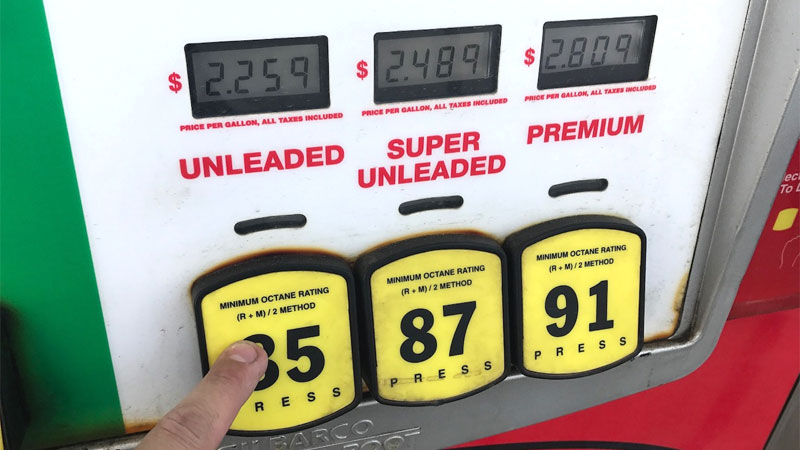
The octane rating of the fuel you use plays an important role in preventing engine knocking. Octane is a measure of a fuel’s ability to resist pre-ignition and withstand compression before igniting. Using fuel with an octane rating lower than what your vehicle requires can lead to engine knocking.
When you compress a mixture of air and fuel in the engine’s combustion chamber, the temperature and pressure increase. If the octane rating is too low, the fuel may ignite spontaneously before the spark plug fires, causing pre-ignition and knocking.
High-performance vehicles, particularly those with high compression ratios or forced induction systems (like turbochargers or superchargers), often require higher octane fuel (usually 91 and above) to operate efficiently and avoid knocking. These engines are designed to compress the air-fuel mixture more, which generates more power but also increases the risk of pre-ignition.
Always refer to your vehicle’s owner’s manual or the inside of the fuel filler door to determine the recommended octane rating for your car. Using fuel with an octane rating lower than specified can lead to reduced performance, decreased fuel efficiency, and potential engine damage over time.
3) Incorrect (or Improperly Gapped) Spark Plugs
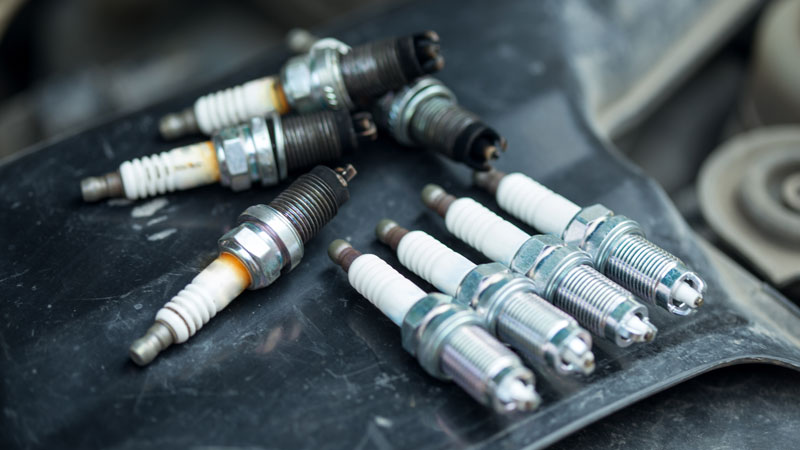
Each different engine is designed to work with spark plugs that have specific heat ranges, which refer to the plug’s ability to dissipate heat from the combustion chamber.
If the spark plugs are too “cold” for your engine, they won’t be able to dissipate heat effectively, leading to pre-ignition and knocking. On the other hand, if the spark plugs are too “hot”, they can cause detonation and damage to the engine over time.
In addition, using spark plugs with incorrect electrode gaps can also cause engine knocking. The gap between the center and ground electrodes determines the spark plug’s ability to ignite the air-fuel mixture efficiently. If the gap is too wide or too narrow, it can lead to incomplete combustion, misfires, and knocking.
To avoid spark plug-related engine knocking, always use the types of spark plugs recommended by your vehicle’s manufacturer. You can find this information in your owner’s manual or by consulting a professional mechanic.
4) Carbon Deposits
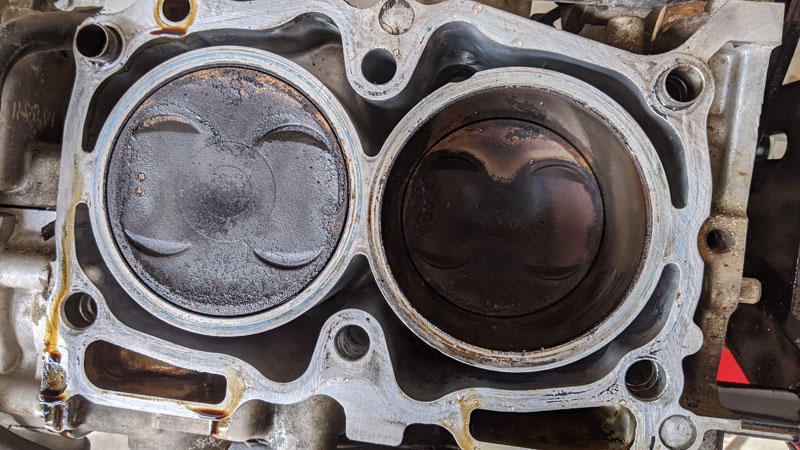
Over time, carbon deposits can accumulate on various engine components, such as spark plugs, valves, and pistons. These deposits are a byproduct of the combustion process and can lead to engine knocking if left unchecked.
Carbon build-up can cause several issues that contribute to engine knocking:
- Hot spots: Carbon deposits on pistons can create hot spots, which can cause the air-fuel mixture to ignite prematurely, leading to pre-ignition and knocking.
- Reduced clearance: Accumulation of carbon on valve stems and piston tops can reduce the clearance between these components and their respective seats or bores. This can lead to improper sealing, compression issues, and knocking.
- Restricted airflow: Carbon build-up on intake valves can restrict airflow into the combustion chamber, causing a lean air-fuel mixture and increasing the likelihood of engine knocking.
To prevent carbon build-up, many gasoline formulations include cleaning additives that help dissolve and remove these deposits. Different gas stations may use different additives so it’s possible, for instance, that carbon buildup is accelerated when consistently fueling up with lower quality fuel. While most gas station brands (ie: Chevron, Costco, Sinclair, etc.) offer “top tier” fuel, their fuel additives may differ.
Regular maintenance, such as having your fuel system and combustion chamber components cleaned, can help minimize carbon build-up. In some cases, more extensive cleaning methods, like walnut blasting or chemical cleaning, may be necessary to remove stubborn deposits.
If you suspect that carbon build-up is causing your engine to knock, consult a professional mechanic to assess the situation and recommend the appropriate course of action.
Read also: 10 Causes of Car Engine Hesitation
5) Insufficient Cylinder Lubrication
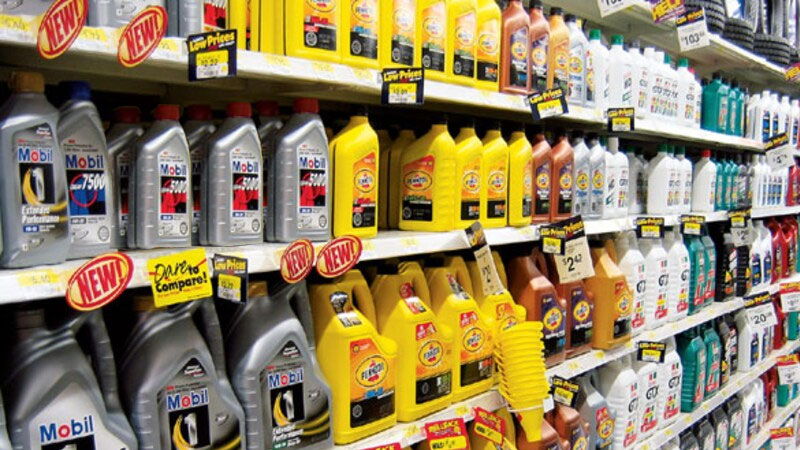
Proper lubrication is necessary for normal operation of your engine’s internal components, particularly in the cylinder head area. If the upper portion of the cylinder head, including the valves and lifters, does not receive adequate lubrication, it can lead to metal-on-metal contact and cause engine knocking.
Insufficient lubrication in the cylinder head can be caused by several factors:
- Loose or worn lifters: Lifters, also known as tappets, are responsible for transmitting motion from the camshaft to the valves. If the lifters are loose or worn, they may not maintain proper contact with the camshaft, leading to inadequate lubrication and increased clearance, which can cause knocking.
- Valve train issues: Worn valve guides, valve stems, or rocker arms can also contribute to improper lubrication in the cylinder head. As these components wear, they may allow excessive clearance, leading to reduced oil pressure and poor lubrication.
- Oil leaks: If there are oil leaks in the cylinder head area, such as from a leaking valve cover gasket or a damaged oil passage, it can result in a lack of lubrication and cause knocking.
- Old or degraded oil: Over time, engine oil breaks down and loses its lubricating properties. If you haven’t changed your oil according to the manufacturer’s recommended intervals, the old oil may not provide adequate lubrication, leading to increased friction and knocking.
To address insufficient cylinder lubrication, start by checking your engine’s oil level and condition. If the oil is low or appears dirty, change it along with the oil filter.
If the issue persists, it’s worth having a mechanic assess the condition of your valve train components, including lifters, valves, and rocker arms. They can determine if any of these components are excessively worn and need replacement to restore proper lubrication and eliminate knocking.
Related: Best Oil Additives to Stop Engine Knocking
How to Fix Engine Knocking (Especially at Idle)
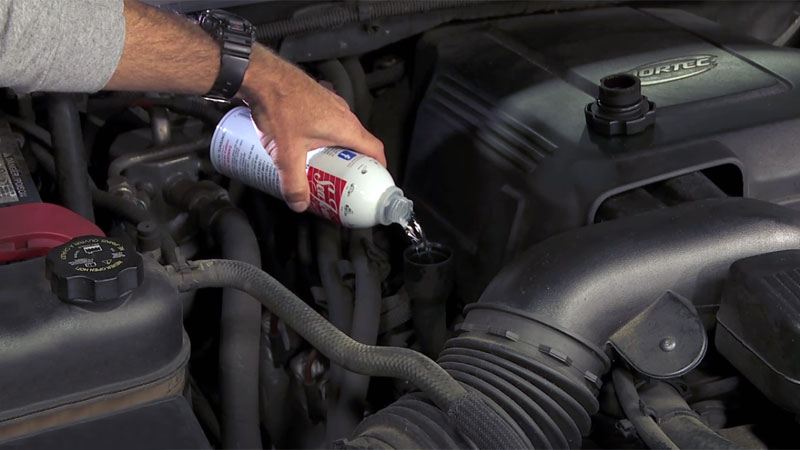
Before taking your vehicle to a mechanic for a professional diagnosis, there are a few simple things you can try to resolve the issue:
Use Higher Quality Fuel
Check your owner’s manual or the information near your gas cap to determine the recommended octane rating for your vehicle. Make sure that you’re using fuel that meets or exceeds this rating.
While most cars run fine on standard 87 octane fuel, high-performance or high-compression engines may require 91 or 93 octane fuel to prevent knocking.
But it’s worth noting that most modern vehicles are able to automatically adjust to lower octane fuel by retarding the ignition timing and/or altering the air-fuel mixture. You’ll often see a reduction in performance or fuel efficiency but you should be safe from any engine damage.
Use a Fuel System Cleaner
As mentioned, carbon deposits can (and will) accumulate in your engine’s combustion chambers and fuel injectors, leading to knocking. To remove these deposits, consider adding a fuel injector cleaner such as Lucas Oil Fuel Treatment or Liqui Moly Jectron to your gas tank.
These additives help dissolve and flush out minor carbon build-up, improving engine performance and reducing knocking.
Use the Correct Spark Plugs
Inspect your spark plugs and make sure that they match the specifications listed in your owner’s manual. Remove the spark plugs and compare their model numbers to those recommended by the manufacturer.
If the plugs are the wrong type or appear excessively dirty, replace them with the appropriate ones.
Try Seafoam Treatment
Seafoam is a popular engine treatment that can help remove carbon deposits from your engine’s intake valves, pistons, and combustion chambers. Follow the product instructions carefully and add the appropriate amount to your fuel tank or directly into the engine through a vacuum line.
If you are not comfortable performing any of these tasks yourself or if the knocking persists after trying these fixes, it’s best to have your vehicle inspected by a professional mechanic. They can diagnose the underlying cause of the knocking and recommend the appropriate course of action to fix it.
Can You Drive a Car With a Knocking Engine?
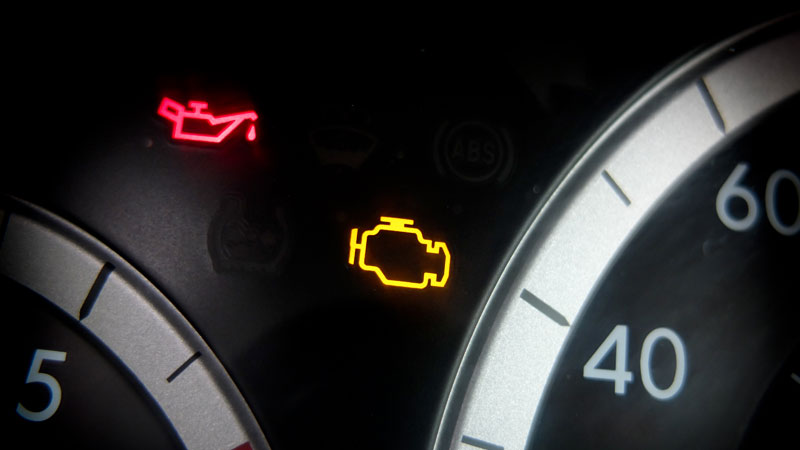
While it’s hard to answer this question without knowing exactly what’s wrong with the car, the safe answer is NO, you should not drive your car with a knocking engine.
While it’ll still be drivable, your odds of causing significant engine damage increase each time you drive it. The worst case could be getting stranded and then facing thousands of dollars in repair bills.
- Power Windows Not Working? (10 Common Causes and How to Fix) - February 8, 2024
- 14 Causes of a Car Losing Power When Accelerating - January 23, 2024
- 13 Causes of Poor Gas Mileage (Increase Your MPG) - December 13, 2023


my 06 dodge charger has knocking noise when idling i’ve had spark plugs replaced oil changed added fuel injector cleaner and still its making knocking nosie only when idling
It might help to use a stethoscope to narrow down the source of the knocking noise.
My allion car makes noise when i start it but eventually dies down..but when l reev it that knock sound is heard…what should l do
Have you found out why my knocking nd now it won’t turn on
my 2008 ford sport trac with a 4.6 lit starts and runs great but after i drive it and then idle up my street it makes a knocking sound for about 20 seconds and then clears up only does it at a low rpm and not all the time
When I start my car from cold there is a slight knocking sound which disappears after a couple of seconds. Then the car is fine all day until the next start from cold next day.
I was thinking of puting an oil addative in the oil. Something like extralube zx1.
Do you think that would fix it??
I guess the only answer is to try it and see, but just wanted your opinion if it might work.
Has the car always done this? It sounds like it’s taking a few moments to build oil pressure.
i just realized that the belt adjuster can cause noise in the engine
Any word on what is was??
What if it only knocks on idle and goes away when the revs are increased
I had a loose crankshaft pulley that exhibited a similar symptom. It’s not possible to know what the cause is in your case without a bit of troubleshooting, unfortunately.
Have you found your cure for knocking at idle?
No I need more explanation on that particular side
Have the same problem with our 2012 Acadia kind of like a tapping clacking noise at idle or low RPM goes away when revved or on cold startup higher RPM until the engine stabilizes then the noise begins until revved. 🤷